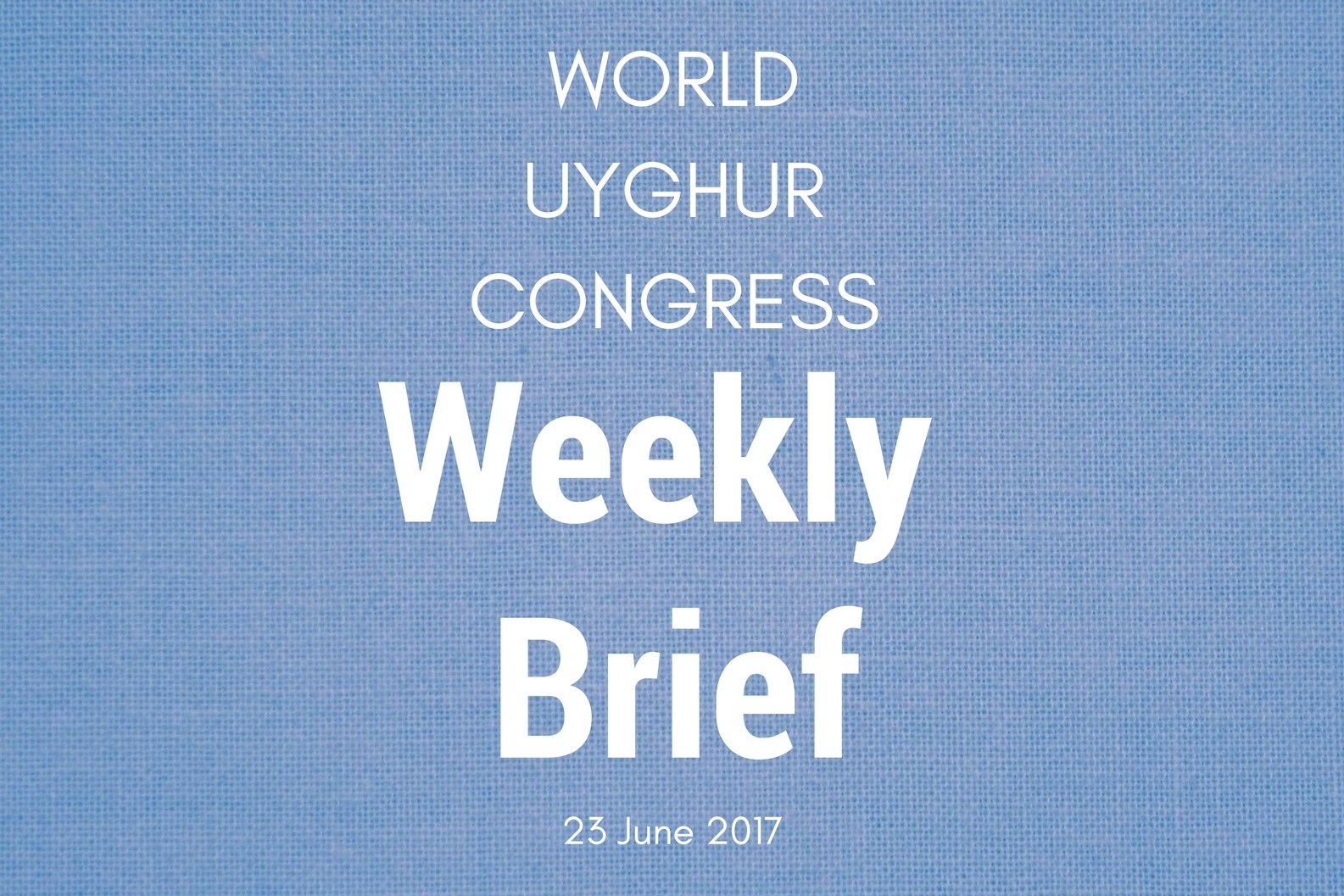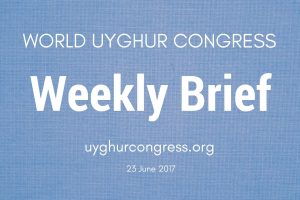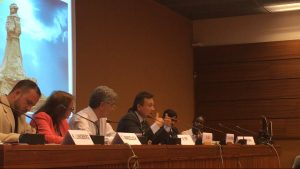Weekly Brief June 23rd

World Uyghur Congress, 23 June 2017

WUC Raises Uyghur Issue at 35th UN Human Rights Council
The World Uyghur Congress sent two representatives to attend the 35th Session of the Human Rights Council in Geneva, Switzerland from June 12-14th. The session allowed the WUC to continue its advocacy effort in the lead up to China’s UPR review next year.
WUC Secretary General, Dolkun Isa, participated in a side event organized by the Baloch Voice Foundation and Africa Cultural International Human Rights on the subject of the China-Pakistan Economic Corridor Project and its impact on the Uyghur and Baloch populations in China and Pakistan respectively. Isa gave a general overview of the situation in East Turkestan as well as the impact that past economic programs have had on Uyghurs and other minority peoples elsewhere.
The WUC also made an oral statement on behalf of the Society for Threatened Peoples during Item 3 General Debate. The statement focused on the most recent news coming from East Turkestan including restrictions on fasting and other religious practice during Ramadan, new rules recently implemented that prohibit the use of names for Uyghur children under the age of 16 considered “too Islamic” and the forced return of many Uyghur students from overseas.
In typical fashion, the Chinese delegation exercised their Right of Reply to refute all of the credible claims made in the statement. During the reply, the Chinese representative said that, “freedom of religious belief is protected,” and “the government understands and respects the religious sentiments of the people.”

Greece Blocks EU’s Statement on China’s Human Rights Record at UN
At a meeting this month at the UN Human Rights Council, Greece blocked the EU’s statement meant to draw attention to human rights abuses in China and its generally poor human rights record. Greece has become increasingly dependent on China since the 2008 financial crisis and is currently courting Chinese investment in its economy. Bowing to this economic pressure, the spokesperson for the Greek Foreign Ministry said that the statement would have been “unproductive criticism”. It marked the first time that the EU has not issued such a statement and is worrying sign that China is continuing and intensifying its efforts to silence any criticism of its human rights record at home and in the international institutions.
It must be noted that this is by no means the only instance of China using economic and political pressure to silence individuals, institutions and states. This week it was reported that a Taiwanese professor and three students were prevented from viewing a session of the Human Rights Council because their Taiwanese passports were not recognized by the UN. This came a month after Taiwan was excluded from a major World Health Organization meeting. The World Uyghur Congress’s General Secretary, Dolkun Isa, was also forced to leave the UN Permanent Forum on Indigenous Issues and offered no justification for his removal.
This systematic targeting and silencing of voices who object to the human rights violations and abuses perpetrated by the Chinese government in international institutions is extremely upsetting development for the rights of people within China and for the concept of human rights as a whole. Sophie Richardson of Human Rights Watch was quoted in a Politico article on this topic, saying that:
China is seeking to weaken international human rights mechanisms … and even if the governments won’t fight back on the principles and the rights of people inside China, they should understand that their own peoples’ rights are at risk as a result of China’s aggressive posture.
We can only urge the members of the European Union and the international community as a whole to stay committed to universal values and belief in common humanity in the face of Chinese pressure. The EU must stand united and continue to be a voice for those who face persecution across the world. Otherwise, the future looks bleak for the Uyghur people and others who are persecuted for merely wanting to enjoy their basic rights and freedoms.
Other Stories:
Chinese Police Detain 10 Ethnic Kazaks for ‘Close Ties’ with Uyghurs
According to Radio Free Asia (RFA), Chinese authorities in East Turkestan detained 10 Ethnic Kazaks on 10 June 2017 for cultivating ‘close ties’ with a group of Uyghur Muslims for prayer. The group was reportedly detained in the city of Karamay by the Dushanzi district state security police. As Ramadan comes to a close, Chinese authorities continue to crack down on the right of Uyghur Muslims to freely practice their religion and apparently now are targeting those who associate with Uyghurs.

